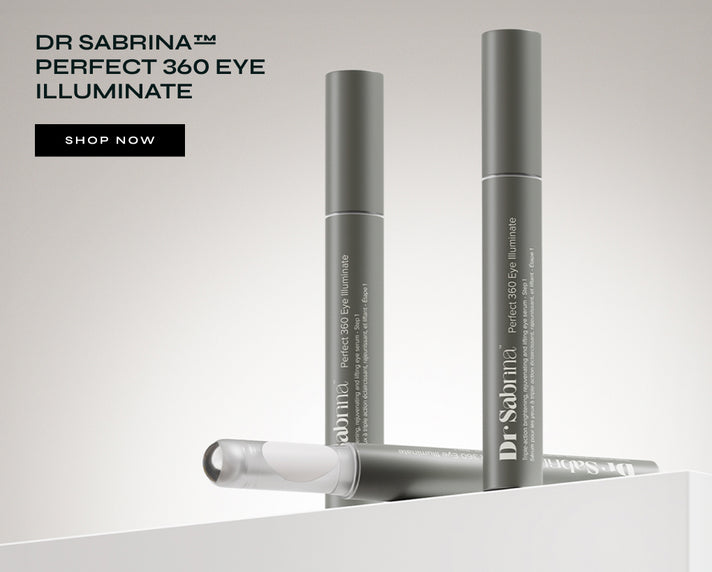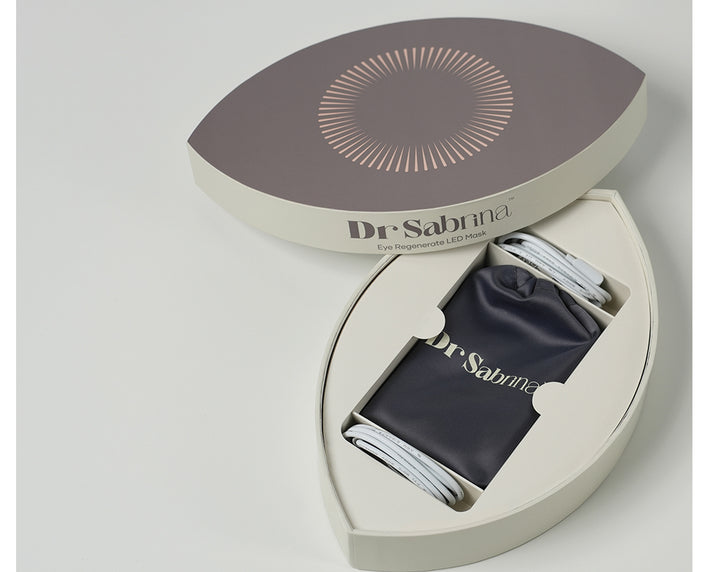Eye Serum
What is SPF? How Long Does It Last?

One term most often heard when it comes to protecting your skin from the harmful rays of the sun is SPF. Whether you are heading to the beach, going for a hike, or merely running errands, SPF is your best friend every single time you step out.
Applying SPF sunscreen is one of the most important things you can do to protect your skin. What exactly is SPF, and how long does it last on your skin? In this blog, we will delve into such questions, see how SPF works, and explore the various types of SPF that you might have encountered—such as SPF 30 and SPF 50.
By the end of this article, you'll understand what SPF means, how long SPF lasts, and which SPF is best for your face.
What Does SPF Mean?
Before we dive into questions like how often to reapply SPF, let's start with the basics: what is SPF? SPF stands for Sun Protection Factor, which measures the level of protection sunscreen offers against UVB rays—the primary cause of sunburn and a significant contributor to premature ageing and increased risk of skin cancer.
SPF values, like 15, 30, or 50, indicate how much UVB protection a sunscreen provides relative to bare skin. For example, an SPF 30 sunscreen blocks about 97% of UVB rays. However, this doesn’t mean it protects you for a set number of hours; factors like sweating, swimming, and direct sunlight require reapplication to maintain effective protection throughout the day.
How Does SPF Work?
The science behind SPF is quite simple. Whenever you apply sunscreen, it forms a protective layer on your skin that absorbs, reflects, or scatters the sun's ultraviolet rays. This prevents the rays from entering and damaging your skin.
However, note that no sunscreen can completely filter out all UV rays. Even sunscreens with the highest SPF rating cannot provide full protection.
How Long Does SPF Last?
Now, let’s address one of the most frequently asked questions: how long does SPF last? The effectiveness of sunscreen is tied to several factors, including the SPF rating, how much is applied, and whether you're sweating or swimming.
Generally, most sunscreens last about two hours before they need to be reapplied. This does not change regardless of the SPF rating. Theoretically, in relation to the duration unprotected skin can last in the sun without damage; SPF 30 should allow you to stay out 30x the duration and SPF 50 should last 50x the duration. However, in reality, the SPF 50 sunscreen lasts only slightly longer than an SPF 30 one.
This is because the time it takes for your sunscreen to wear off is dependent on the activities that you partake in, whereas the SPF rating measurement is done in a controlled environment without as many variables. This means if you are involved in activities such as swimming and sweating, you will need to reapply sunscreen more often than otherwise.
To summarise:
- How long does SPF 30 last? As aforementioned, SPF 30 protects your skin from about 97% of UVB rays. Usually, it is recommended to apply it twice an hour when you are outdoors, under direct sunlight, or sweating.
- How long does SPF 50 last? SPF 50 offers a little more protection, blocking around 98% of UVB rays. Just as with the SPF 30, you must reapply it roughly every two hours to remain protected.
Choosing the Right SPF for Your Skin
Applying a sun protectant to the skin around your eyes is crucial to tackle and prevent common skin concerns like dark circles. The best dark circle corrector should have at least SPF 30 rating.
So how do I choose which SPF is more suitable for the face and body? That depends on your type of skin, your activities, and how much time you spend outside. Following are some general guidelines:
- Daily use when you’re mostly indoors: If you are indoors most of the time but you go out sometimes, a broad-spectrum sunscreen with an SPF of 30 is enough. Moisturisers with SPF are convenient for daily use.
- Outdoor: If you spend most of your time outdoors, especially during peak sun hours, then you should use a product of SPF 50 or higher and reapply every two hours;
- Sensitive skin: If you are prone to sensitive skin, you are better off having chemical sunscreens containing minerals like zinc oxide or titanium dioxide that cause less irritation.
- For breakout-prone skin with acne: If you're prone to breakouts, use oil-free or non-comedogenic sunscreens to avoid clogging pores.
Understanding Different Types of SPF: SPF 30 vs. SPF 50
Now that you know what the different SPF ratings mean and how long SPF lasts, let’s summarise the difference between SPF 30 and SPF 50.
- SPF 30: Blocks around 97% UVB rays.
- SPF 50: Blocks around 98% UVB rays.
While SPF 50 gives slightly more protection than SPF 30, no sunscreen is able to block 100% of UV rays. For the average person, SPF 30 is more than sufficient, but if you have very pale skin, a history of skin cancer or spend a lot of time outdoors, you may want to opt for SPF 50, since every little bit of additional protection counts.
How Long Does SPF Last on Your Face?
With regards to facial sunscreen, you must be wondering: how long does sunscreen last on your face and how much sunscreen do you need to use for your face? Sunscreen on your face lasts shorter periods compared to other parts of your body because your facial skin produces oil and sweat, or you just rub or touch your face.
Let's now answer some of the major questions people have over facial sunscreens:
- Which SPF is best for face? Dermatologists always recommend putting at least SPF 30 on your face, though you may need to use a more potent SPF 50 if you have fair skin, spend a lot outdoors, or are particularly sensitive to the sun.
- How long does SPF last on the face? Like the rest of your body, SPF applied to your face must also be reapplied every two hours. If you are wearing makeup, consider using an SPF powder or setting spray to make it easier to be reapplied throughout the day without messing up your look.
Conclusion
SPF, or Sun Protection Factor, is a measure of the protection provided by sunscreens against damaging effects by the UVB rays of the sun, thus preventing sunburn, early ageing, and even cancer.
Knowing how long it lasts on your skin can help you get the most out of your sunscreen. As a rule of thumb, you should reapply sunscreen every two hours.
The choice of which SPF will be best for your face or body depends on your skin type, how long you'll spend outdoors, and other variables like sweat, water exposure, and makeup. Ultimately, it always pays to have protection that your skin will thank you for later on in life.
Protecting your skin with SPF daily is essential to prevent long-term damage, and for targeted care, it’s helpful to understand how dark circle correctors work to maintain a healthy, youthful look, especially around delicate areas like the eyes."
Now you’re ready to choose the best sunscreen for your skin to protect against the damaging effects of the sun.
FAQs On SPF
What is SPF?
SPF stands for Sun Protection Factor. This is the measurement of the protection a sunscreen will give to your skin from UVB rays, which are known to cause sunburn.
How long does SPF last?
Generally, any sunscreen lasts for two hours. How long before you have to reapply does not have anything to do with the SPF number. If you are swimming or sweating, reapply more often than you would otherwise.
How long does SPF 50 last compared to SPF 30?
Both SPF 30 and SPF 50 last for about two hours but SPF 50 provides slightly higher protection since it blocks 98% of UVB rays while SPF 30 blocks 97%.
What is the best SPF for your face?
For regular use, at least SPF 30 will suffice, but for extended periods spent outdoors, you may want to go for SPF 50 to ensure better protection.

















